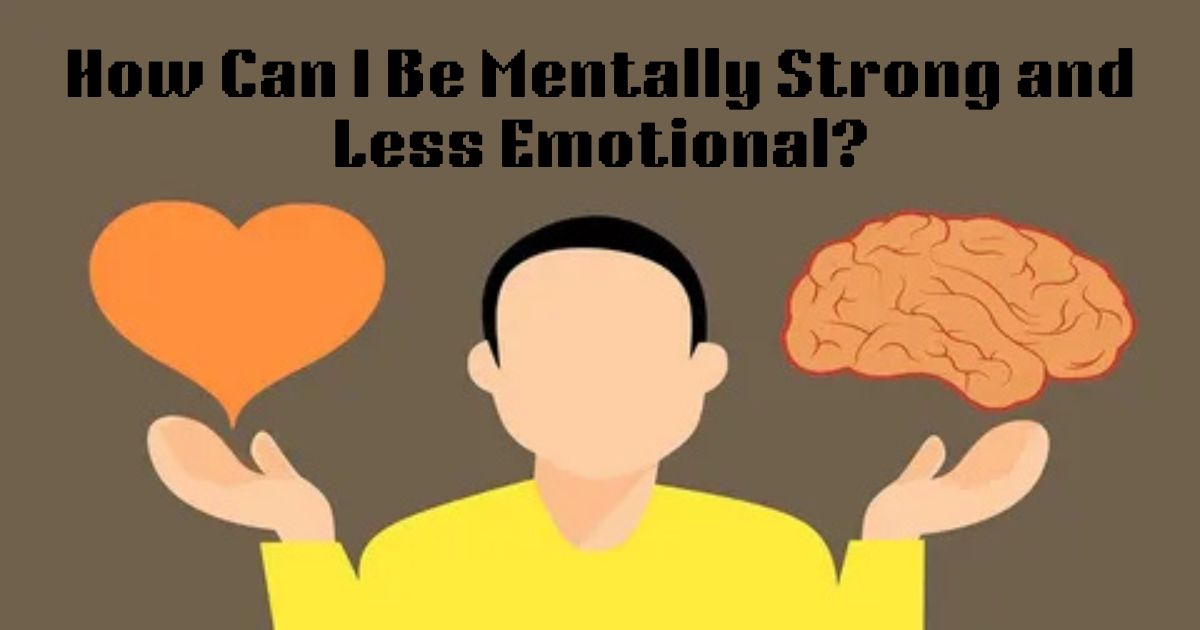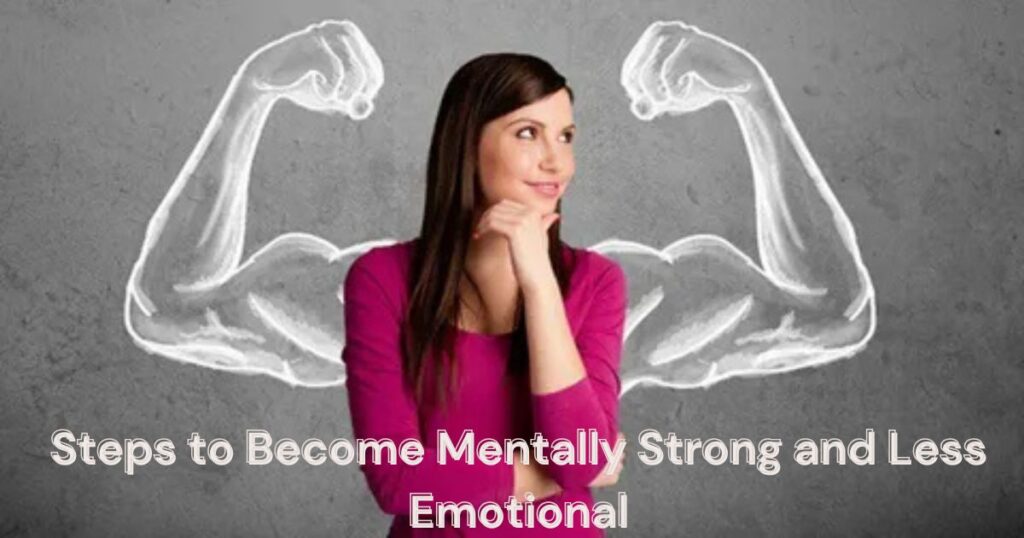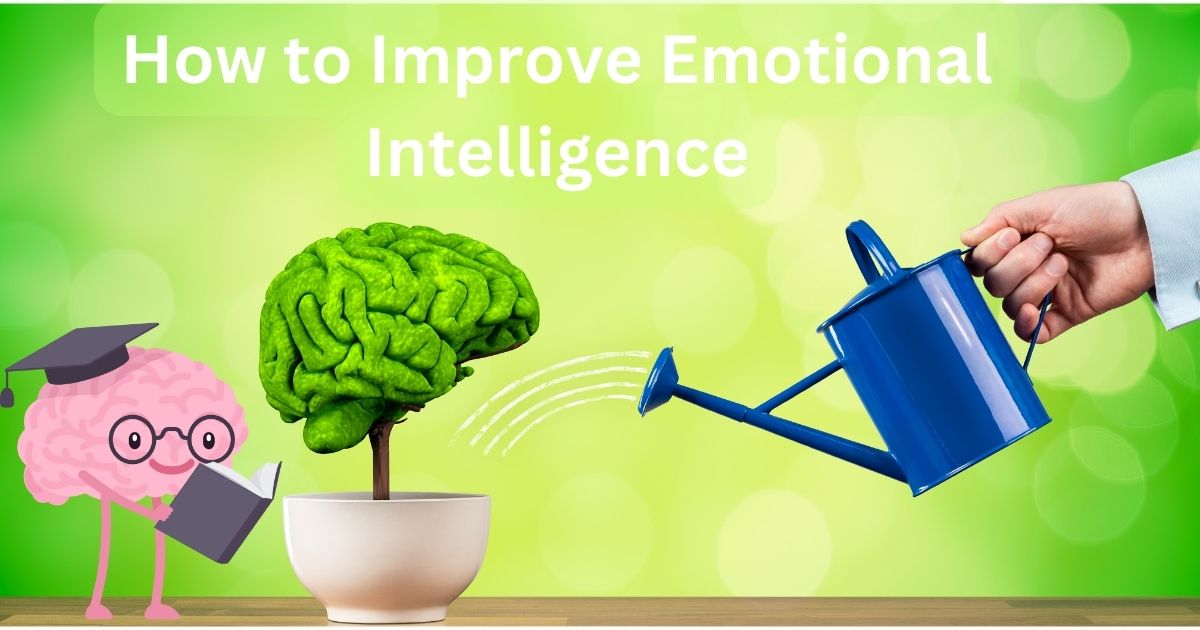How Can I Be Mentally Strong and Less Emotional?

Introduction
Building mental strength and managing emotions effectively are essential skills for leading a balanced and fulfilling life. Becoming mentally strong doesn’t mean suppressing your emotions but learning how to navigate them wisely.
Here’s a guide to help you develop mental resilience and emotional regulation.
- Mental strength is about managing emotions effectively, not suppressing them.
- Self-awareness is the foundation of emotional regulation; identify your triggers and patterns.
- Techniques like deep breathing and pausing before reacting help control impulsive responses.
- Setting healthy boundaries protects your mental and emotional energy.
- Replace negative habits with constructive coping mechanisms, such as exercise or meditation.
- Challenge negative thoughts and maintain a balanced perspective.
- Focus on what you can control, letting go of unnecessary stressors.
- Gratitude practice improves resilience and mental well-being.
- Building mental strength is a gradual process that benefits from consistent effort and if needed, professional guidance.
Why Is Mental Strength Important?
Mental strength helps you handle stress, overcome challenges, and maintain a positive outlook even in difficult times. By strengthening your mind, you can make better decisions, build healthier relationships, and pursue goals with greater confidence.
Steps to Become Mentally Strong and Less Emotional

Steps to Become Mentally Strong and Less Emotional
1. Understand Your Emotions
Take time to identify what triggers your emotional reactions. Self-awareness is the first step to managing your emotions effectively. Journaling or mindfulness exercises can help you recognize patterns in your emotional responses.
2. Practice Emotional Regulation
Learn to pause before reacting. When you feel overwhelmed, take deep breaths or count to ten. This simple technique can help you gain control over your impulses and respond rationally.
3. Set Boundaries
Establish clear boundaries to protect your mental and emotional energy. Say no to situations or people that drain you or lead to unnecessary stress.
4. Develop Healthy Coping Mechanisms
Replace unhealthy habits, such as emotional eating or avoidance, with constructive activities like exercising, meditating, or pursuing hobbies. These practices can improve your overall well-being and resilience.
5. Challenge Negative Thoughts
Mental strength involves maintaining a balanced perspective. When faced with negative thoughts, challenge them by questioning their validity and considering alternative viewpoints.
6. Build a Support System
Surround yourself with people who uplift and encourage you. A strong support system can provide guidance and reassurance during tough times.
7. Focus on What You Can Control
Instead of dwelling on things outside your control, direct your energy toward actions you can take to improve your situation. This shift in focus reduces unnecessary worry and stress.
8. Practice Gratitude
Regularly reflect on the positive aspects of your life. Gratitude can shift your mindset and make you more resilient to challenges.
9. Invest in Personal Growth
Continuous learning and self-improvement can boost your confidence and mental toughness. Take up courses, read books, or attend workshops to enhance your skills.
10. Seek Professional Help If Needed
If managing emotions becomes overwhelming, don’t hesitate to consult a therapist or counselor. They can provide personalized strategies to help you develop emotional resilience.
FAQs About How Can I Be Mentally Strong and Less Emotional?
1. Can I completely stop being emotional?
No, emotions are a natural part of being human. The goal is not to eliminate emotions but to learn how to manage them effectively.
2. How long does it take to become mentally strong?
Building mental strength is a gradual process that varies for each person. You can start seeing changes in a few weeks to months with consistent effort.
3. Can emotional people become mentally strong?
Absolutely! Being emotional doesn’t mean you lack mental strength. It’s about learning to channel your emotions productively.
4. Does meditation help in becoming mentally strong?
Yes, meditation enhances self-awareness, reduces stress, and improves focus, all contributing to mental strength.
5. Are there books to help me build mental resilience?
Yes, books like “The Power of Now” by Eckhart Tolle and “Grit” by Angela Duckworth are excellent resources for building mental strength.
Conclusion
Becoming mentally strong and less emotional is a journey that requires patience and consistent effort. By understanding your emotions, adopting healthy coping mechanisms, and focusing on personal growth, you can develop the resilience needed to navigate life’s challenges with grace and confidence.





